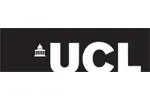

University College London (UCL), the United Kingdom
University College London (UCL)| The award | How you will study | Study duration | Course start | Domestic course fees | International course fees |
|---|---|---|---|---|---|
| MA | Full-time, Part-time, Mixed-mode | 1 - 2 year | January, April, October | find out | find out |
This masters degree will:
This masters degree provides the opportunity to:
Anyone with a personal, professional, educational or academic interest in media, culture and communication in terms of both analysis and production.
Entry requirementsA good first degree in a relevant subject.
Core topicsBy coursework assignments of up to 5,000 words, plus practical work for some modules, and a 20,000-word dissertation or 10,000-word report.
AttendanceMixed mode, including face-to-face residential workshops at the IOE and British Film Institute of two to three days per module, supported by online learning.
Where do our students go?Graduates of this masters degree are currently working as:
This masters degree will:
This masters degree provides the opportunity to:
Anyone with a personal, professional, educational or academic interest in media, culture and communication in terms of both analysis and production.
Entry requirementsA good first degree in a relevant subject.
Core topicsBy coursework assignments of up to 5,000 words, plus practical work for some modules, and a 20,000-word dissertation or 10,000-word report.
AttendanceMixed mode, including face-to-face residential workshops at the IOE and British Film Institute of two to three days per module, supported by online learning.
Where do our students go?Graduates of this masters degree are currently working as:
Core modules
Below are some suggested courses at other providers that you may also be interested in:
Erasmus Mundus International Master in Central & East European, Russian & Eurasian Studies Master
Institute of European Studies
Find out moreIf you do not meet the entry requirements for this course then consider one of these postgraduate preparation courses from another institution:
Graduate Diploma of Engineering (Electrical Systems)
Engineering Institute of Technology
Find out moreThere are 635 other courses listed from University College London (UCL). A selection of these are displayed below:
See other universities in London
Find out more about studying in the United Kingdom